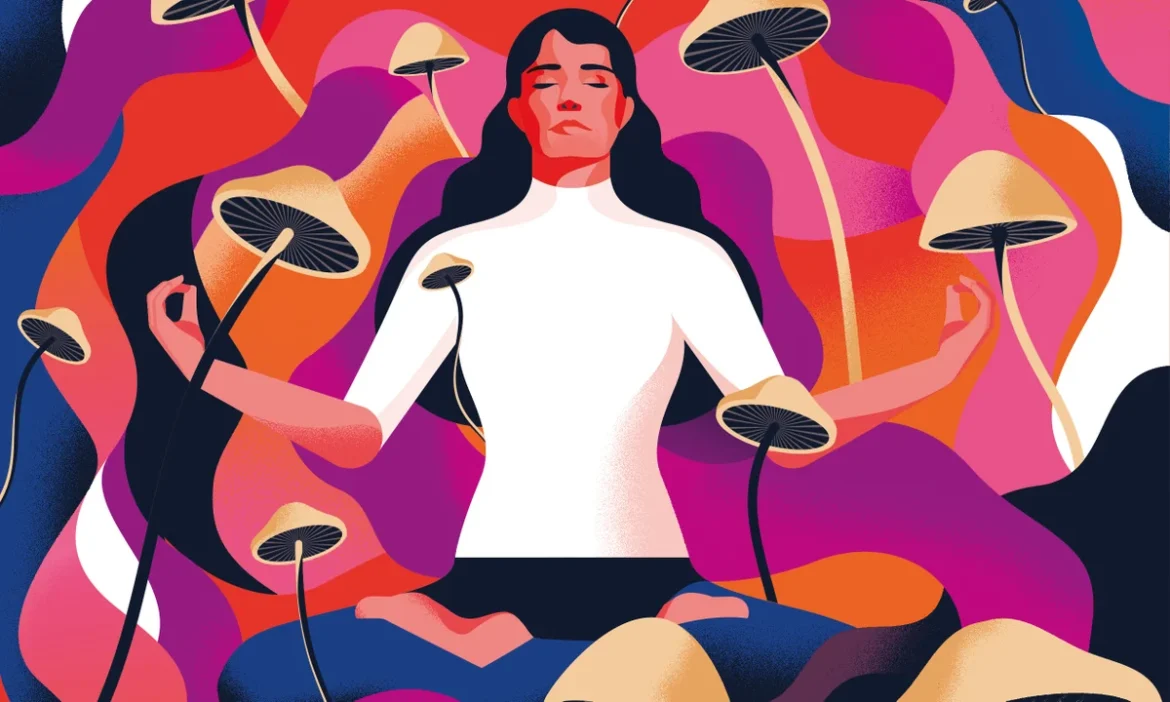In recent years, immersive healing retreats have emerged as powerful sanctuaries for people seeking deep emotional healing and personal transformation. Often nestled in serene natural locations, these programs offer a structured and supportive environment for individuals to explore altered states of consciousness using plant-based medicines like psilocybin mushrooms and ayahuasca. For many, these journeys have proven to be more than therapeutic: they have been truly life-changing.
What Is a Psychedelic Retreat?
One type of immersive experience gaining popularity is the psychedelic retreat, where participants engage with consciousness-expanding substances under the supervision of trained facilitators, therapists, or shamans. These programs often take place over several days and include preparation sessions, guided ceremonies, and post-ceremony integration work. The aim is not recreational use but rather to facilitate healing, spiritual insight, and deep emotional breakthroughs.
Common substances used in these settings include psilocybin (found in magic mushrooms), ayahuasca (a traditional Amazonian brew), and sometimes LSD or mescaline. The setting is intentionally designed to be safe, supportive, and introspective.
Why People Turn to These Retreats
Traditional therapy, while beneficial, doesn’t always reach the core of emotional pain or trauma. Many individuals find themselves stuck in cycles of anxiety, depression, addiction, or burnout despite years of counseling or medication. Alternative healing retreats offer a path that bypasses intellectual defenses and accesses the subconscious directly.
People often turn to these programs for reasons such as:
- Persistent depression or PTSD that hasn’t responded to conventional treatment
- Addiction recovery and a desire to uncover root causes
- Emotional numbness or a longing to reconnect with oneself
- Spiritual growth and a desire to find deeper meaning in life
Real Stories of Healing and Transformation
Case Study 1: Overcoming Depression After 10 Years of Struggle
Emma, a 34-year-old teacher from the UK, battled severe depression for over a decade. Despite multiple antidepressants and years of therapy, she still felt like she was “just surviving.” After attending a psilocybin-focused retreat in the Netherlands, she described the experience as a turning point: “For the first time, I saw myself with compassion. I confronted the pain I’d buried for years. I felt lighter: like something had been lifted off my soul.”
Case Study 2: Healing Childhood Trauma Through Guided Psilocybin Ceremony
James, 42, struggled with anger and disconnection, rooted in early childhood abuse. At a legal retreat center in Costa Rica, guided sessions with psilocybin allowed him to relive and reprocess traumatic memories in a supportive environment. Post-retreat, he described an emotional release unlike anything he’d experienced in therapy. “It was like years of emotional armor just melted away,” he shared.
Case Study 3: A CEO’s Journey from Burnout to Inner Clarity
Samantha, a high-performing executive, came to a healing program feeling emotionally burnt out. Despite career success, she felt empty and disconnected. During an ayahuasca retreat in Peru, she experienced visions that helped her reconnect with her inner child and redefine her values. Upon returning, she made life changes that prioritized wellbeing over constant productivity.
The Science Behind the Healing
Modern research supports what many indigenous cultures have known for centuries: psychedelics can be profoundly therapeutic when used in the right setting. These substances promote neuroplasticity (the brain’s ability to form new connections) and reduce activity in the Default Mode Network (DMN), which is associated with ego, rumination, and self-criticism.
Clinical studies from institutions like Johns Hopkins University and Imperial College London have shown promising results for psilocybin in treating depression, PTSD, and addiction. The key lies in integration therapy: helping participants process and apply the insights gained during the psychedelic experience.
What to Expect at a Psychedelic Retreat
Most programs follow a carefully curated structure to ensure physical and emotional safety:
- Preparation: Pre-retreat interviews and coaching to set intentions and assess mental health suitability.
- Ceremonies: Guided psychedelic sessions often accompanied by music, breathwork, and meditation.
- Integration: Daily group sharing, one-on-one therapy, and post-retreat support to help participants make sense of their experiences.
Meals are typically plant-based, and the atmosphere is calm, supportive, and sacred. Participants are encouraged to disconnect from technology and tune into themselves.
Choosing the Right Retreat for You
Not all programs are created equal. Here are some key factors to consider:
- Facilitator experience and credentials
- Safety protocols and mental health screening
- Legality of substances in the host country
- Post-retreat support (integration therapy is crucial)
Popular destinations for legal experiences include:
- Netherlands (psilocybin truffles)
- Costa Rica (ayahuasca and psilocybin)
- Portugal and Peru (ayahuasca)
Always research testimonials, verify medical screening practices, and ask about emergency protocols.
Is It Right for Everyone?
While these retreats can offer incredible healing, they aren’t for everyone. People with a personal or family history of psychosis or schizophrenia, certain heart conditions, or those on SSRIs should consult a medical professional before attending.
Participants should approach the experience with humility, openness, and a genuine desire for inner work. It’s not a quick fix: it’s a catalyst for deep transformation, requiring commitment to integration and self-care.
Final Thoughts: A Path to Deep, Lasting Change
This kind of immersive healing journey is not a magic bullet, but for many, it unlocks a door that traditional therapy couldn’t. It offers a sacred space for people to face their inner pain, rewrite their stories, and reconnect with their authentic selves.
Real stories of healing remind us that change is possible. If you feel called to explore this path, know that you’re not alone: and the journey, while challenging, can be profoundly liberating.
For many, the life-changing power of a psychedelic retreat lies not just in the trip itself, but in what happens after: a renewed sense of self, purpose, and possibility.


